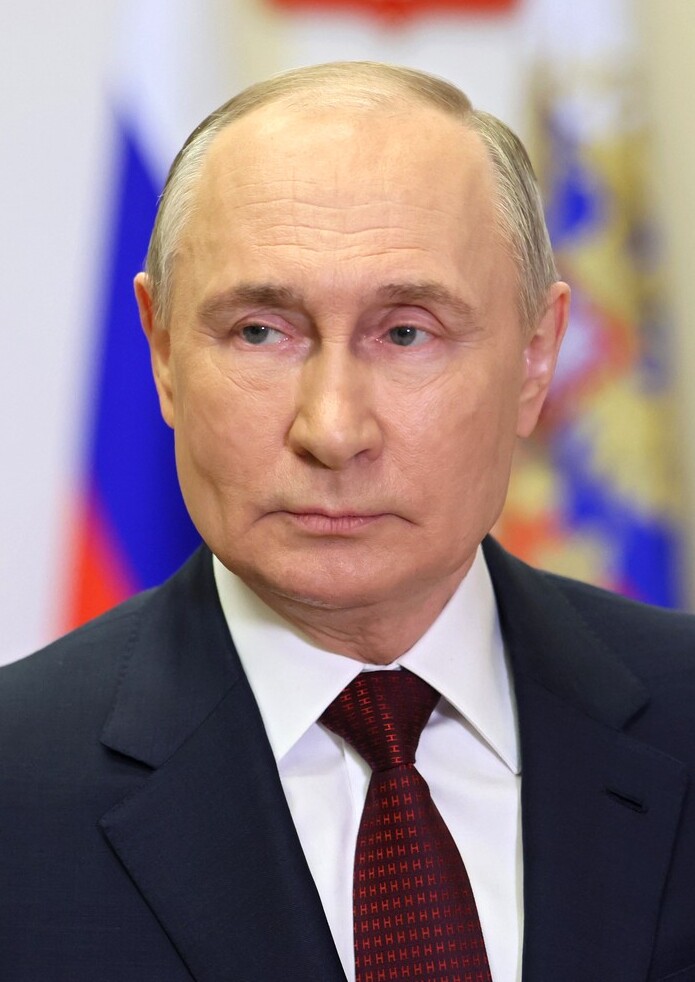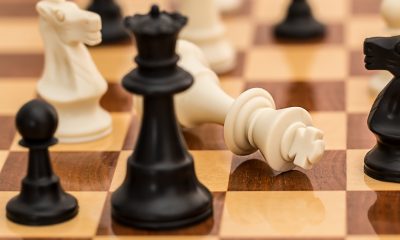By Christopher K. Tong, University of Maryland, Baltimore County and Charles Krusekopf, Royal Roads University, The Conversation
Vladimir Putin arrived in Mongolia on Sept. 2, the first time the Russian president has visited an International Criminal Court (ICC) member country since the body issued a warrant for his arrest in 2023. While officially commemorating a Soviet-Mongolian military victory in World War II, Putin’s visit will test the small central Asian country’s policy of neutrality and the reach of international institutions.
Mongolia, a country of just 3.3 million people but with huge geographical territory, has long navigated its foreign policy in the shadow of Russia and China, with whom it has extensive historical and economic ties.
The country has attempted to bolster its independence from its more powerful neighbors by developing cordial relations with so-called third neighbor countries that include the United States, Germany, Japan and South Korea.
Through this approach, Mongolia has attempted to carve out a niche on the international stage, presenting itself as a neutral diplomatic meeting ground. Its annual Ulaanbaatar Dialogue, for example, is an opportunity for regional countries and other invited nations, including from the U.S. and EU member states, to discuss issues ranging from climate change to regional security and critical minerals.
As scholars of Mongolia and China, we attended the last such dialogue in June 2024 and witnessed Mongolia’s diplomatic efforts firsthand. It is a strategy that has worked for the country, but as events like Putin’s visit highlight, it can be a tough balancing act.
A closely watched visit
The timing of Putin’s trip is officially linked to history. It marks both the 85th anniversary of the Battle of Khalkhin Gol – in which joint Soviet-Mongolian forces defeated Japanese troops in World War II – and the founding of Mongolia’s national railway operator by the two countries 75 years ago.
Yet it is a third historical marker, the fifth anniversary of a comprehensive Russian-Mongolian strategic partnership, that highlights the visit’s significance from a modern geopolitical perspective.
Alongside its friendly relations with “third neighbors,” Mongolia has maintained a close relationship with Moscow despite Putin’s pariah status in much of the international community. Most recently, in July, Mongolian President Ukhnaagiin Khurelsukh met with Putin at the Shanghai Cooperation Organization summit.
Yet Putin’s visit now – the first he has made to the country since 2019 – poses a challenge for Mongolia as it seeks to balance its obligations and alliances with the Western-led international order, of which the ICC is a part, and its desire to remain friendly with its powerful neighbors.
Few things demonstrate this diplomatic tightrope walk like Mongolia’s membership in the ICC, which issued an arrest warrant for Putin over his alleged role in the unlawful deportation and transfer of Ukrainian children to Russia. Ukraine has urged Mongolia to detain Putin, citing the ICC’s founding treaty, the Rome Statute, which instructs member countries to take action if subjects to a court warrant enter their territory.
However, the ICC lacks an effective enforcement mechanism, and member states may also be exempt from carrying out arrests if doing so conflicts with certain treaty obligations or diplomatic immunity offered to another party.
Putin’s visit is expected to demonstrate how little can be done to rein in Moscow. Given the power imbalance between the states, Mongolia will likely show just how far it is willing to go to accommodate its powerful neighbor.
Mongolia’s ‘Third Neighbor’ policy
For almost 70 years, Mongolia was closely allied with the Soviet Union. But the fall of communism and subsequent geopolitical reorientation of the post-Cold War order forced the country to alter its economic and political relations.
In so doing, Mongolia became the only former communist state in Asia to adopt a democratic political system and open economy. It won favor with the U.S. and other Western countries who embraced the country as a role model for the region.
Putin’s expected trip is but the latest in a series of recent high-profile state visits as Mongolia seeks to maintain close relations with its neighbors, while also expanding partnerships with other nations.
So far in 2024, Mongolia has received heads of state or foreign ministers from the U.S., Slovenia, the Philippines, Belarus, the United Kingdom and Germany. In 2023, Mongolian Prime Minister Luvsannamsrain Oyun-Erdene traveled to the U.S. and met with Vice President Kamala Harris, and to China to see President Xi Jinping and Premier Li Qiang.
Both French President Emmanuel Macron and Pope Francis have recently visited Ulaanbaatar.
Mongolia can’t escape geography
While soft power efforts have won Ulaanbaatar goodwill and friends around the globe, they do not trump geography. Landlocked between Russia and China, Mongolia remains vulnerable to the whims of its two giant neighbors.
Mongolia is dependent on Russia for almost all its gasoline and diesel supplies and a substantial part of its electricity. Further, due to a legacy agreement from the Soviet era, Russia retains 50% ownership in several key infrastructure and mining projects in Mongolia. In particular, Russia is a partner in the Mongolian railway system, which has grown in importance as a trade corridor between China and Russia, and China and Europe.
Mongolia fears that its fuel supplies and transportation network will be disrupted if Russia prioritizes its own energy needs in the midst of war over the interests of its neighbors, however deep those ties may be.
Similarly, Mongolia is dependent on China for the majority of its non-energy imports, including food, consumer and industrial products. And China is the destination for 90% of Mongolia’s exports, primarily coal and copper.
Both Russia and China have used their economic and political muscle as leverage over Mongolia in the past due to perceived slights, such as China’s disruption of trade and a key loan in 2016 in protest of a visit to Mongolia by the Dalai Lama.
Mongolia and the new China-Russia alignment
Mongolia and other states in Central Asia face new challenges as Russia and China grow closer politically and economically.
Mongolia played the role of a buffer state between the Soviet Union and China for much of the 20th century, and counted on the rivalry between the two superpowers to gain and maintain its independent status.
But the growing friendship between China and Russia – highlighted by Putin and Xi’s declaration of a “no limits” partnership in February 2022, just days before Russian troops invaded Ukraine – raises the question whether China and Russia will begin to act in concert to gain even more leverage over Mongolia and other smaller states in region.
It is these geopolitical concerns that Ulaanbaatar may be fixated upon during Putin’s visit. Even as Mongolia has been affected by the sanctions placed on Russia, seeing transportation and business links disrupted, the country has steered clear of confrontations with Moscow in international settings.
Along with China, Mongolia routinely abstains from United Nations resolutions condemning Russia’s invasion of Ukraine. But in a sign that Mongolia remains committed to its third neighbor policy, it has also been careful not to violate the sanctions imposed on Russia by the U.S. and its allies.
While Mongolia recognizes the importance of Putin’s visit to maintain good ties and the flow of fuel to the country, it will also be concerned with how the visit and its anticipated non-enforcement of ICC sanctions will hurt the country’s standing with global institutions and powers outside the region.
In a shifting world order, Mongolia is working hard to maintain independence by emphasizing its role as a neutral state and friend to all. But visits such as Putin’s show how difficult that endeavor can be.![]()
Christopher K. Tong, Associate Professor of Asian Studies, University of Maryland, Baltimore County and Charles Krusekopf, Professor of Business, Royal Roads University
This article is republished from The Conversation under a Creative Commons license. Read the original article.




























